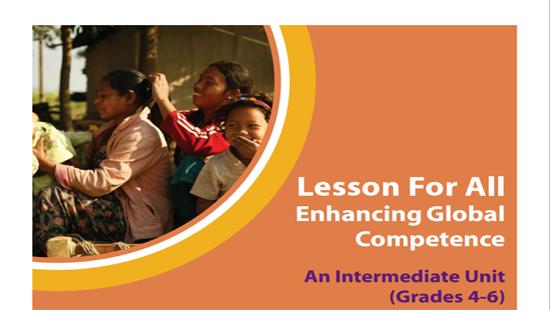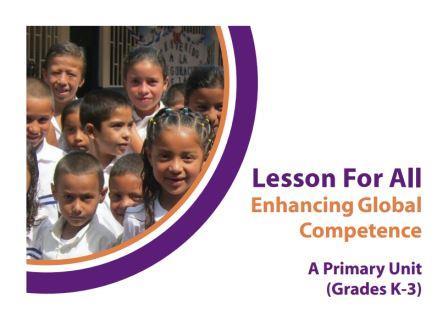
When Ed Gragert asked if I would be interested in working on a project he was involved with, I didn’t hesitate. He is a man that I have respected and admired during his leadership as the Executive Director for iEARN, and although I wasn’t familiar with The Global Campaign for Education, United States, I jumped in with both feet.
As I wrote The Lesson For All units, I began to understand the gravity of this issue. What I learned gave me faith in us as human beings. It gave me hope in a more peaceful planet. It brought me fear for girls and women of our world. It pulled me through sadness and grief for lives unable to be fulfilled. But mostly, it filled me with pride to see what we as global leaders, educators, and caring citizens are doing to make this a more stable and humane place for all people of our ever-smaller world.
Here are a few facts to get you thinking:
• In 1959, the United Nations adopted the DECLARATION OF THE RIGHTS OF A CHILD, giving children the right of a free education, among other things.
• In 2000, the United Nations developed THE MILLENNIUM DEVELOPMENT GOALS (MDGs). They are the world’s biggest promise – a global agreement to reduce poverty and human deprivation at historically unprecedented rates through collaborative action by the year 2015. Universal free primary education is among the goals.
• Significant progress has been made toward the MDGs but has stalled in some areas of  the world.
the world.
Universal education is an issue that affects all of us on this small planet, and it is one that cannot be ignored as caring and pragmatic human beings. I hope that you too find what is real and possible in your corner of the world as you work through these units with your own classroom.
I will let my class of 10-11 year olds tell you what they thought:
“The United Nations has set a goal of an Education For All by 2015. Well that’s sort of a problem for it already being 2013. I think what needs to happen is to look more closely at the research of places that need the most help.” ~Sophia
“When looking for the reasons some kids are not in school, we have to stop and ask some questions.” ~ Kaylee
“If you didn’t go to school you would feel powerless.” ~Ian
“When people feel powerless and less protected, they join gangs so they can feel powerful. That’s why some wars start.” ~Ally
“We should educate all kids by not ranking people and thinking that boys need an education more than girls.” ~Kate
“I think education should be free because many families do not have money. Some people have to spend their life in a dump looking for scraps to sell and for food.” ~Justin
“No child deserves to live in a dump.” ~Savion
“THANK YOU SO MUCH UNITED NATIONS!!!!!!” ~Ethan
“An education is a wonderful thing to have, because the place won’t have poverty, people won’t think that they are powerless, everyone will have a stable life, the environment will be good, and the spread of disease will stop.” ~Megha
“So far they are getting way more kids in school than they were in 2000, but there are still millions of kids not in school.” ~Griffin
“I think the goal is possible, actually I know it is possible, but it will be hard work. Some people are stepping up to help. These people are life savers. I hope more people will feel to help. I really hope this goal comes true. The world needs it, and the suffering kids need it to happen ” ~Ally
“Together, everyone can make a difference” ~Griffin

